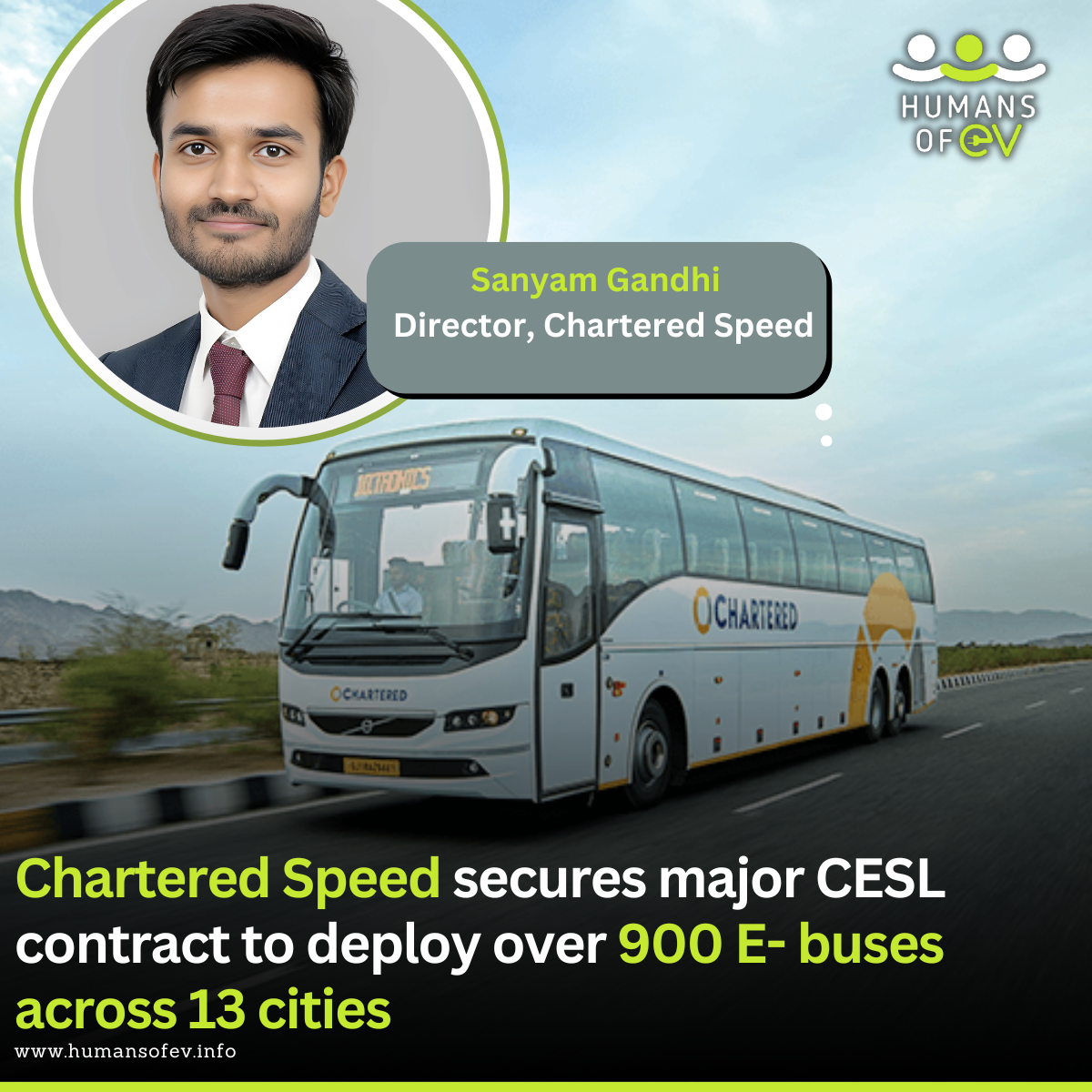
March 19, 2025
Transportation service provider Chartered Speed is set to dramatically accelerate India’s electric public transit adoption after securing a significant contract from Convergence Energy Services Limited (CESL) to operate more than 900 electric buses under the Pradhan Mantri e-Bus Sewa Scheme.
The ambitious project will bring clean-energy public transportation to 13 cities across three states—Chhattisgarh, Rajasthan, and Meghalaya—and is expected to serve approximately 290,000 passengers daily while creating over 2,000 new jobs.
Under the agreement, Chartered Speed will be responsible for the end-to-end management of these electric buses, handling procurement, operations, and maintenance across all deployed locations.
Geographic Coverage and Impact
The electric buses will serve diverse urban centers including Raipur, Durg-Bhilai, Bilaspur, and Korba in Chhattisgarh; Ajmer, Alwar, Bikaner, Bhilwara, Jaipur, Jodhpur, Kota, and Udaipur in Rajasthan; and Shillong in Meghalaya.
“This contract represents a significant milestone in our journey toward sustainable public transportation,” said [Spokesperson Name], [Title] at Chartered Speed. “By deploying these electric buses across multiple cities, we’re not just expanding our operational footprint but actively contributing to cleaner urban environments and improved quality of life for hundreds of thousands of daily commuters.”
Industry experts note that the deployment aligns with India’s broader push toward electric mobility in public transportation, with the potential to reduce carbon emissions by thousands of tons annually compared to conventional diesel buses.
Expanding Operations
This new contract substantially expands Chartered Speed’s already considerable presence in India’s transportation sector. The company currently operates more than 1,800 buses across Gujarat, Madhya Pradesh, Odisha, and Assam, serving both government contracts (B2G) and private-sector partnerships (B2B) while also offering direct consumer services (B2C).
The addition of 900+ electric buses represents a significant step in the company’s strategic shift toward sustainable mobility solutions. While Chartered Speed has historically operated conventional internal combustion engine vehicles, it has been progressively introducing electric and alternative fuel-powered options into its fleet.
Employment and Economic Benefits
Beyond environmental impacts, the project promises substantial economic benefits for the regions involved. The creation of over 2,000 jobs will include roles for drivers, maintenance technicians, charging infrastructure specialists, and administrative staff across the 13 cities.
Transport policy experts suggest that successful implementation of this large-scale electric bus deployment could serve as a model for other regions in India looking to transition their public transportation systems to cleaner alternatives.
“What’s particularly noteworthy about this initiative is its multi-state approach,” commented [Industry Expert], a transportation analyst. “By simultaneously deploying across 13 cities in three different states, Chartered Speed and CESL are creating a valuable test case for addressing diverse geographic, infrastructural, and operational challenges in India’s electric bus transition.”
With electric buses typically costing less to maintain over their lifetime compared to diesel counterparts, the project may also demonstrate long-term economic viability for similar transitions elsewhere, potentially accelerating India’s path toward meeting its climate commitments in the transportation sector.


